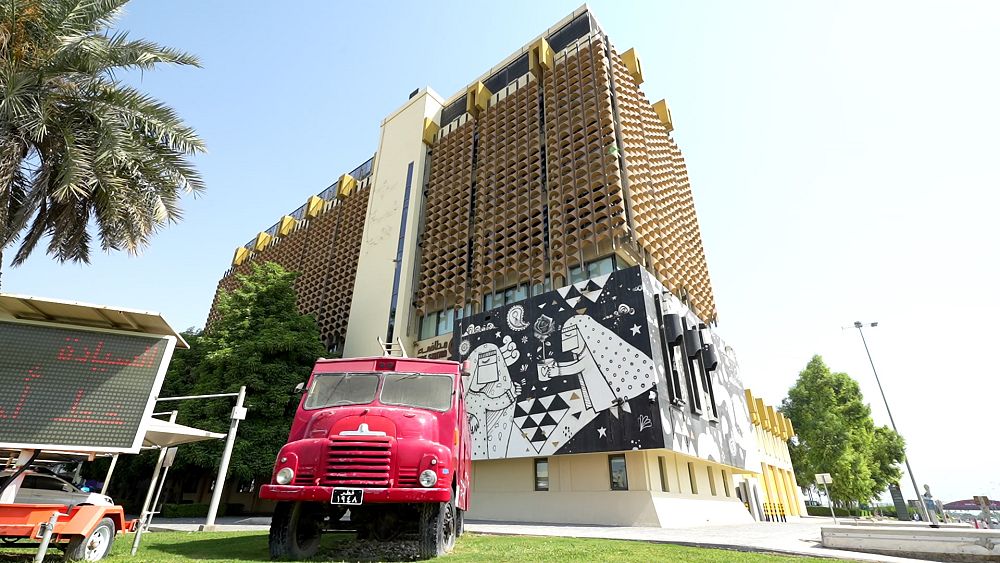SCENES shines a spotlight on youth around the world that are breaking down barriers and creating change. The character-driven short films will inspire and amaze, as these young change-makers tell their remarkable stories.
In the heart of Doha stands a vibrant structure full of creativity and innovation. The iconic building, formerly a fire station, has undergone an extraordinary transformation, emerging as the centre for arka in Qatar. Brimming with creative workspaces, a gallery, a cinema, an arka supply shop and a café, this unique space is also home to a much-revered Artist-in-Residence programme.
The artists
Saida Alkhulaifi is the Artist-in-Residence programme manager at the Fire Station. She says that the programme provides emerging artists with a creative workspace to help develop their skills and launch their artistic careers.
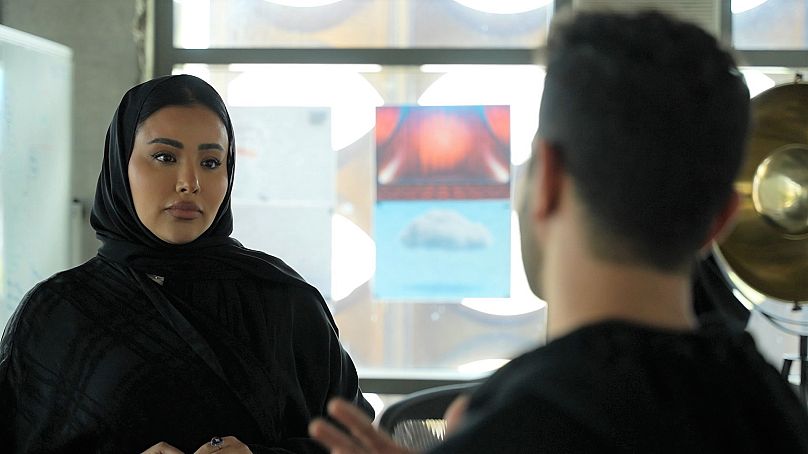
“Each year, we receive between 150 and 250 applications, but only 15 artists are successful for each residency term,” explains Saida.
One of the artists in this year’s cohort is British mixed-media artist Simon Mortimer. Simon is currently working on a project about Qatari popular culture. His work involves layering traditional arka mediums, such as oil paint, with çağdaş mediums, such as spray paint and marker pens. Simon says that the programme is helping him produce arka that he has never had the opportunity to create before.
“Thanks to the artists in residency, I’ve had free rein to explore anything I want. I’m playing with material and processes. I’m widening my visual vocabulary,” he says.
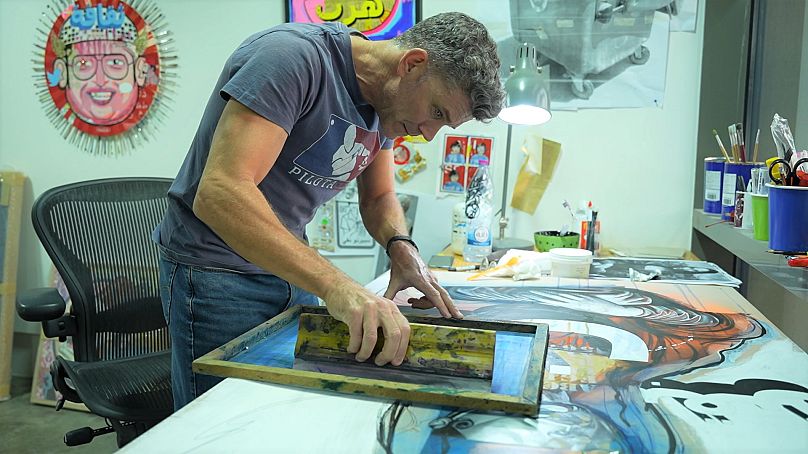
Hind Al Obaidli is a Qatari painter and fellow artist-in-residence. Her current arka project focuses on human figures and portraits underwater. She says she is thrilled to be part of the programme and that it encourages her to be more ambitious with her arka. “I think it came at the perfect time for me to do bigger scale paintings, which is something I wanted to do,” explains Hind.
The Artist-in-Residence programme gives traditional and unconventional artists recognition and support for their craft. Yousef Fakhroo specialises in audio arka. He says that the programme increased his creativity and that he received invaluable feedback from other artists. “Audio arka is definitely understated. I’m privileged to have been given this opportunity.” Yousef tells SCENES.
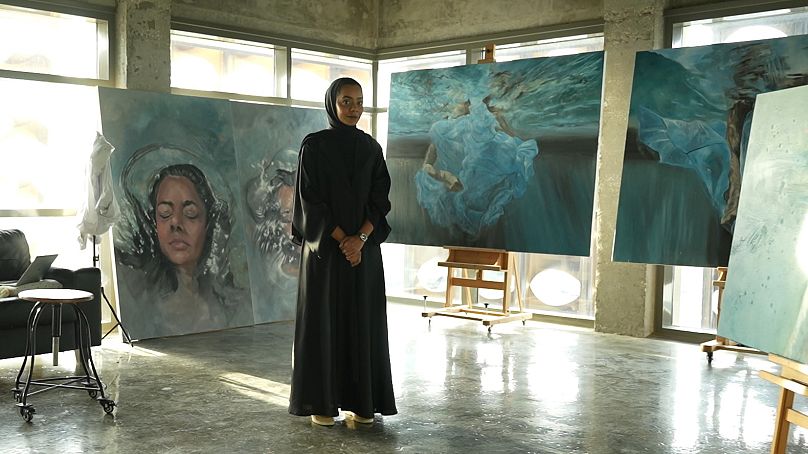
The building
While Simon, Hind and Yousef’s artwork differ significantly, they all share a love for the building they inhabit. “As an architect and an artist who’s using this building, I can see how everything is well thought out,” says Hind.
Simon visits the building daily and says that Qatar’s culture inspires him. He commends the Fire Station for the opportunities it provides artists. “We’ve got this fantastic shop. Yesterday I ran out of spray paint, so I went to the shop, and they were really helpful,” he says.
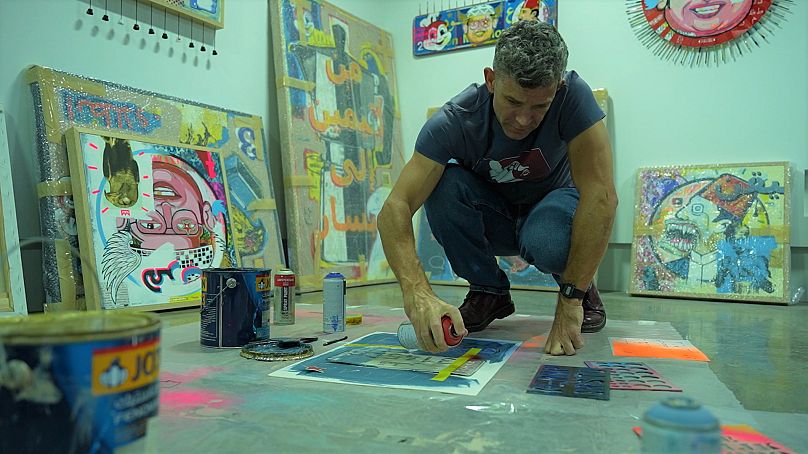
He often takes advantage of the Fire Station’s workshop, using its advanced laser cutter system to create custom stencils. “It’s so handy having everything in the same building. It really allows me to concentrate purely on making my arka,” he says.
The Fire Station was built in 1982 and served as a home for the Civil Defense Authority until late 2012. The original building was preserved to flaunt architectural features from the 80s, says Saida. It was then repurposed and renovated in 2014 as an ‘adaptive reuse project.’
The honeycomb exterior and the firefighter’s pole were retained as a tribute to the building’s past, but new features were needed. “It was refurbished to have a contemporary touch and facilities were added to make it more useful,” Saida tells Scenes.
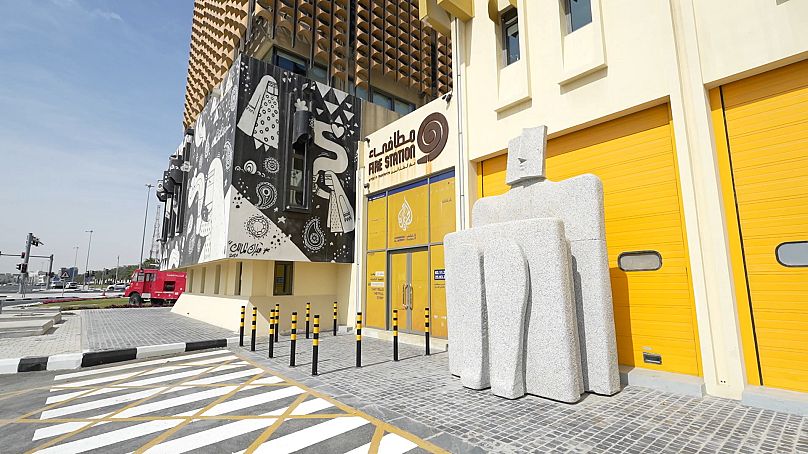
The end-of-residency exhibition
After nine months of hard work, the artists showcase their work at the end-of-residency exhibition. As one of the first audio artists ever selected for the program, Yousef feels fortunate to have the opportunity to showcase his arka in Qatar. “To showcase audio arka in the country is not very common,” he says.
He describes his arka as a multisensory experience focusing on audio. “I’ve seen people who walk up to my sound installations and see them walk out with a different look, a different feeling. It really resonates with people,” he says.
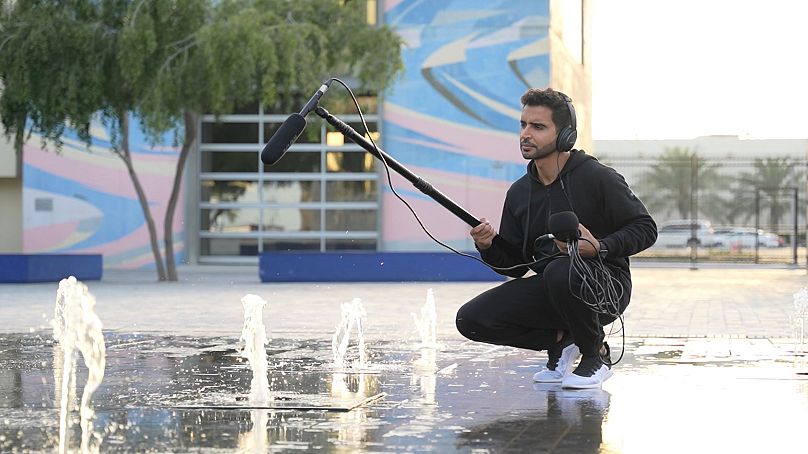
Yousef’s enthusiasm for audio as a medium and tool in arka is contagious. He hopes his exhibited work will inspire people, provoke thoughts, and create discussions. “I’m beyond excited that I get this opportunity to showcase my work and my messages and my thoughts through my audio arka to the community of Qatar and beyond,” he says. “An exhibition is a great opportunity because you get a huge exposure. This helps many young artists starting their artistic career,” adds Hind.
At its core, the Fire Station’s Artists-in-Residence programme facilitates, inspires and promotes artists in Qatar. The building’s unique architecture and history feed into the fabric of the residency programme, serving as a source of creativity and wonder. For those fortunate enough to participate, this programme is often a pivotal step in their artistic journey.
Source: Euronews
